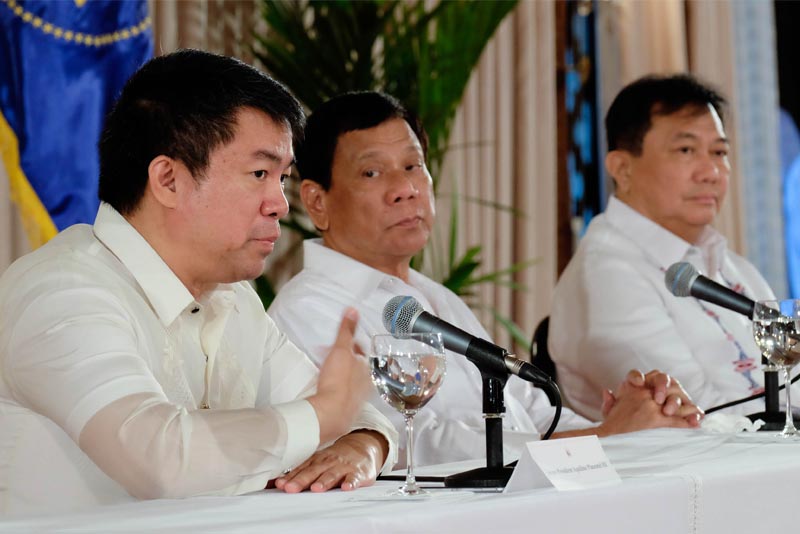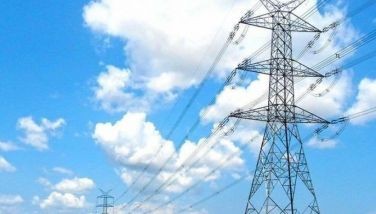SC directs government to answer petitions vs TRAIN law

At a ceremony in Malacañan, President Rodrigo Duterte signed into law the Tax Reform for Acceleration and Inclusion bill and the General Appropriations Act of 2018. Presidential Photo/Toto Lozano
MANILA, Philippines — The Supreme Court on Tuesday ordered the government to answer the two petitions seeking the issuance of halt order against the Tax Reform for Acceleration and Inclusion law.
Sitting as full court, the SC directed the Office of the Solicitor General to "comment on the petitions and applications for Temporary Restraining Order within a period of ten days from notice" of the order.
The SC also ordered the consolidation of the two petitions asking for a halt order or temporary restraining order against the TRAIN law.
The first petition was filed by Reps. Antonio Tinio (ACT Teachers party-list), Carlos Isagani Zarate (Bayan Muna party-list) and Ariel Casilao (Anakpawis party-list) on Jan. 11.
READ: Makabayan lawmakers file petition vs 'runaway' TRAIN Law
The three lawmakers said that there was House leaders committed grave abuse of discretion when they ratified the TRAIN Bicameral Conference Committee Report "despite the glaring lack of quorum."
"The Rules violated are not mere internal rules of the House. The requirements of a quorum and approval of bills are constitutional mandates or requirements," the petitioners also said.
Solicitor General Jose Calida, shortly following the filing of the lawmakers' petition, taunted the petitioners by saying: "Is that all you have to nullify the TRAIN law?" He also "thanked" the petitioners "for making [his] job easier."
A second petition against TRAIN law was filed by consumer advocacy group Laban Konsyumer Inc. (LKI) on Monday, January 23.
READ: Consumer group asks Supreme Court to strike down TRAIN law
Led by former Trade Undersecretary Vic Dimagiba, LKI said that the law should be struck down as its provisions "impose a heavy burden on Filipinos from low-income and poor families, who make up the majority of our population."
Dimagiba raised that the "unwarranted increases" in excise taxes on coal, diesel, liquefied petroleum gas (LPG) and kerosene "will only equalize any possible gains of the rationalization of personal income taxes."
He also said that the TRAIN law will "beset those belonging to the poor and low-income families whose resources are extremely finite."
The TRAIN law, signed by President Rodrigo Duterte on December 19 last year, seeks to raise P130 billion in revenues to bankroll his administration's economic agenda.
The law will adjust personal income tax rates to shift the burden off lower-income segments toward the “ultra-rich.” Meanwhile, projected revenues to be foregone from lower personal income tax will be offset by higher excise levies on petroleum and automobiles, among others.
RELATED: Winners and losers: How the TRAIN law affects rich, poor Filipinos | How the government plans to help poor Filipinos affected by TRAIN
- Latest
- Trending



























